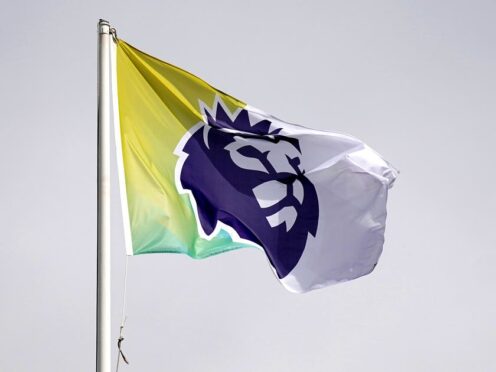A more transparent sanction framework is set to form part of the new Premier League squad cost rules, the PA news agency understands.
Clubs spending 115 per cent of revenue or more on squad costs will face sanction, but are set to have greater certainty up front of what any punishment might be under the framework.
The current profitability and sustainability rules (PSR) have been criticised in some quarters – in particular by supporters of Everton and Nottingham Forest – because sanctions for breaching PSR have been left to the discretion of the independent commissions hearing the cases to set, based on the mitigating and aggravating factors presented to them.

Clubs – including Everton – opted against the introduction of a sanction framework for PSR when the matter was raised in 2020, but it is understood one is set to be part of the new financial rules clubs hope to sign off at the league’s annual general meeting on June 6.
It is understood factors which will affect the severity of the sanction will include whether it is a first offence, for example, and the size of the overspend.
Sporting sanctions such as points deductions will still form part of the framework.
The squad cost rules are set to limit Premier League clubs to spending 85 per cent of revenue on player wages, head coach wages, agents fees and transfer amortisation costs. A financial levy is set to be imposed on clubs who go over over 85 per cent but stay below 115 per cent.
However, the rules will then seek to balance that overspend – and guard against clubs staying permanently in that ‘amber zone’ by imposing a lower ratio thereafter – so an 87 per cent ratio might require clubs to meet 83 per cent at the next measuring point.
The Premier League did not comment.
Top-flight clubs are working to agree new rules against the backdrop of football’s new independent regulator progressing through Parliament.
The Government has so far resisted calls to extend the remit of the regulator to oversee competition financial rules in the Premier League, the EFL and the National League.
Pressed on the topic at a committee hearing to discuss the Football Governance Bill on Tuesday, Premier League chief executive Richard Masters said: “The decision the Government has taken is that this is for football bodies to look after. I wouldn’t support the regulator looking after those rules.”
EFL chairman Rick Parry agreed with Masters’ position and said: “I think it’s the boundary of where football authorities deal with the rules that govern the competition.
“As Richard said earlier, part of the role of the PSR is competitive balance rather than the sustainability of individual clubs. There is an element of crossover but I do think that PSR, cost control rules should fall firmly with the leagues to operate.”

Another key element of the Premier League’s new financial rules is anchoring, which would effectively impose a hard spending cap on wages, agents’ fees and so on. The cap would be a multiple – perhaps four-and-a-half or five times – the amount in central revenue earned by the league’s bottom club.
A majority of clubs have voted in favour of examining the anchoring proposal more closely. The league is now conducting a legal and economic analysis of the concept and is understood to have begun discussions with the Professional Footballers’ Association (PFA).
The union has said it will oppose any proposal which amounts to a hard salary cap.
